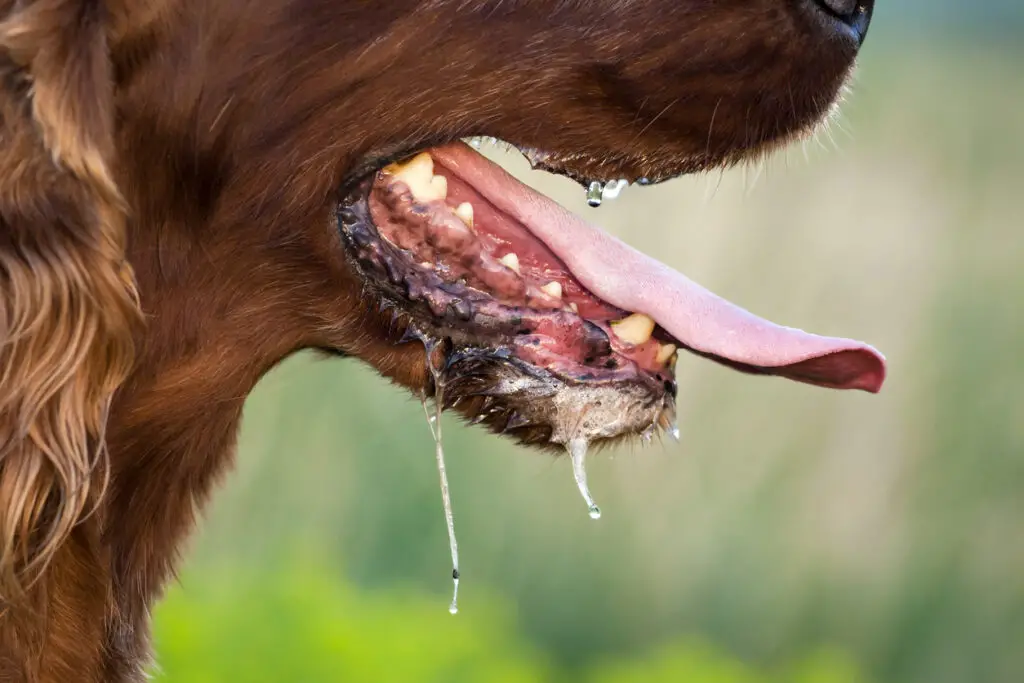Obsession Overload

Spend a few sessions playing fetch with a ball-obsessed dog, and you may see them fixate on it and ignoring everything else, refusing breaks, even chasing it until exhaustion. Experts notes “some dogs become obsessed with fetch, refusing to stop even when tired or injured,” which can lead to “physical collapse, dehydration, or heatstroke”. This obsessive behavior can also spill into other areas of life: not sharing toys, snapping at people or pets who come near the ball, or total meltdown when the ball is hidden. This is a psychological issue and not just physical exhaustion which can severely affect a dog’s wellbeing and behavior.
Joint Stress and Injury

Veterinary rehab experts explain that continuous sprinting, leaping, and abrupt stopping, especially on hard surfaces puts a severe strain on muscles, tendons, and joints. These repetitive motions accelerate wear, leading to early arthritis or even acute injuries like CCL tears. One blog even describes limp after fetch as a common sight: “Playing fetch is a leading cause of many of the injuries of dogs I see walking or, more accurately, limping”. When dogs tire, they lose control over their bodies. As a result, braking becomes sloppy, balance is off, and wrecks happen more easily. Therefore owners should remember that it’s not just fun to exercise, it’s a high-impact activity that can wear them down over time if not managed carefully.
Choking Hazards & Dental Damage

Did you know that a tennis ball might be harder on your dog’s teeth than you think? The classic fetch tool which is the tennis ball, has rough, fibrous surfaces. Many dogs chew and shred them, increasing risks on two fronts: choking and dental harm. Small bits can break off and lodge in the throat, and the abrasive fuzz wears down enamel. Trainers and vets alike caution that, if your dog treats a tennis ball like a chew toy, this could become a serious issue.
Neck, Spine & Sudden Twist Strain

There’s also a need to add that quick spins and abrupt direction changes add risk to your dog’s well-being even if they look effortless. A joyful dash after a ball may hide a sharp jerk or sudden turn, which breeds a perfect recipe for neck strains or spinal trauma. MC Rehabilitation notes that dogs on high alert during fetch develop “tunnel vision,” sacrificing awareness of their body positioning. Combine that with erratic landings or twisted leaps, especially on uneven ground or pavement, and the risk of muscle injury or spinal damage increases significantly. The scary thing is, these abrupt movements may not manifest immediately, but repetitive stress adds up often in silence.
Overheating Alert

Playing fetch in warm weather might look harmless but it can push dogs into dangerous territory. This is because dogs don’t always know when they’ve had enough. Vet explains there are two types of heatstroke which are exertional (from overexertion) and non-exertional (like being stuck in a hot car). Fetch in high heat is a perfect scenario for exertional heatstroke. Signs start with heavy panting, thick drool, red gums, stumbling, and collapse, symptoms that can escalate rapidly. A simple trick to combat this? Vet advice is to use the “seven-second rule”. That is, if you can’t hold your hand on the pavement for seven seconds, then it’s too hot for your pup’s paws and too hot for fetch. Also, when you see early signs of overheating, stop the game, move to shade, offer cool water, and go straight to the vet if serious signs appear.
Breed-Specific Limits

Not every dog is built for high-energy games under the sun. Flat-faced breeds like pugs, bulldogs, and Frenchies are much less equipped to handle prolonged activity because they struggle with breathing and cooling down. Health groups warn these breeds may face genetic breathing disorders so severe that their existence is questioned without intervention. Reddit users also share heartbreaking stories, such as a Frenchie needing back surgery after a short jump due to congenital issues. In short, fetch isn’t just exhausting, it can pose significant health risks for these dogs, even with moderate play. Therefore, vets suggest low-intensity, leisurely activities like gentle indoor games, slow strolls, or sniffing puzzles, even in the coolest weather.
Adrenaline Habit

High-adrenaline play like fetch elevates dogs’ excitement levels and can leave them wired, long after the game ends. So you might observe them jumping, barking, struggling to settle, even showing aggression when you remove the toy. Vets caution that this kind of “high-energy habit” can make everyday calmness harder to reach, as dogs may pant constantly, pace, or nip at hands because their system stays revved up, especially if they’ve been in a hyper-aroused state repeatedly. Instead, trainers often recommend swapping some fetch sessions with calm games like scent work, light tug, soft obedience treats, or quiet lounging activities that offer mental stimulation without intense physical exertion or freakout levels. This helps dogs learn to self-soothe, recharge, and feel grounded so when they do get excited during fetch, it’s within healthier limits.
This story Why Vets Say Playing Fetch Might Be “Hurting Your Dog and Not Helping” was first published on Daily FETCH


